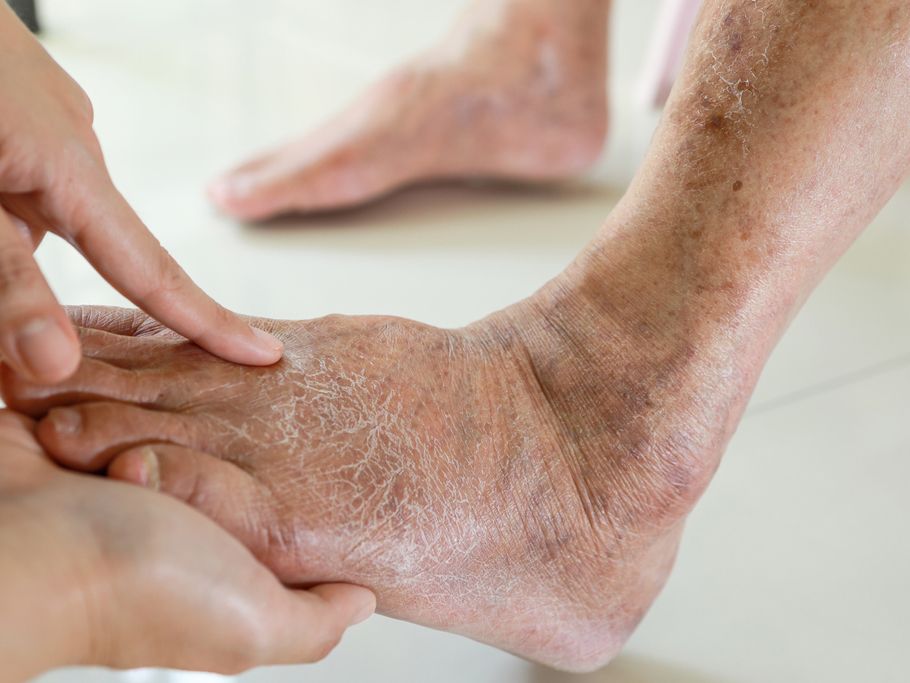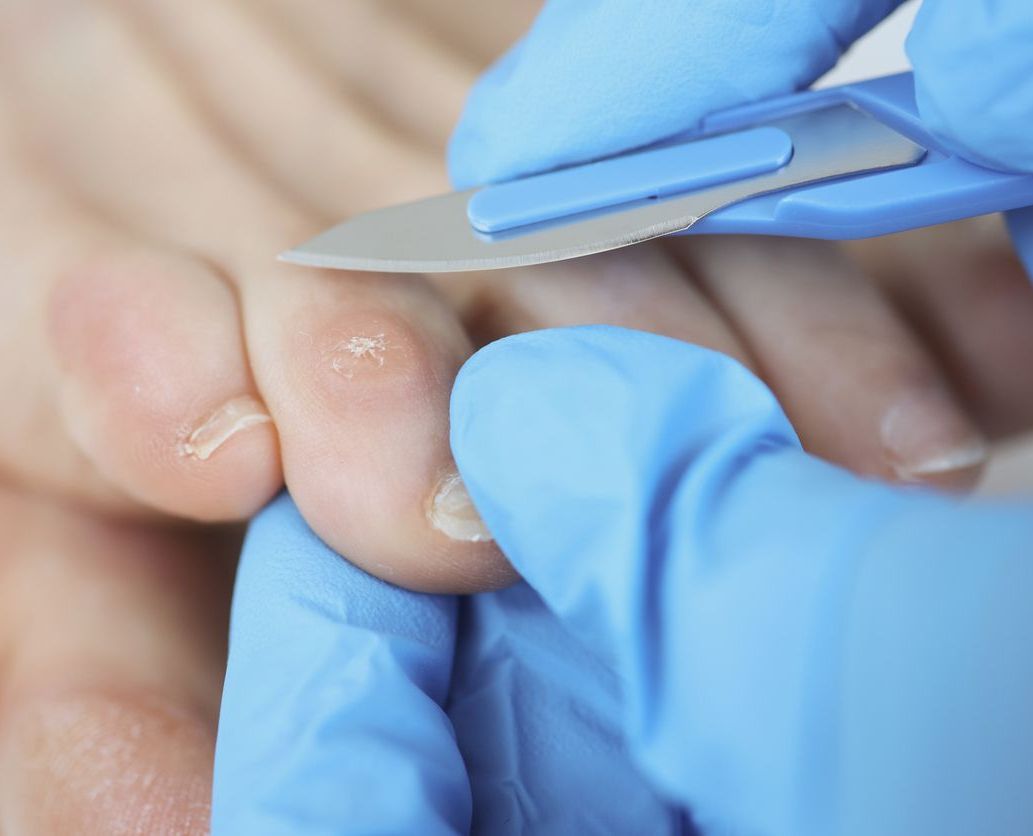Austin Office:
Austin Office:

diabetic Foot
Every person who is diabetic should have an ongoing relationship with a podiatrist. That’s because the feet and lower legs of a person with diabetes require close attention and care.
Problems with high blood sugar can, over time, damage nerves and blood vessels in the feet. The nerve damage is called diabetic neuropathy and often results in numbness, tingling, a pins-and-needles sensation, pain or loss of feeling in the feet. The reduction of blood supply to the feet can weaken the skin, leading to ulcers and slow healing.
Professional monitoring of your feet is vital if you suffer from neuropathy. That numbness makes it difficult to sense when you have a small cut or blister on your feet. Even a minor injury can easily become infected, turning it into a serious problem. Neuropathy can also affect your ability to walk stably and easily.
We have extensive experience helping patients suffering from diabetic foot and welcome you to our clinic for the very best in podiatric care.
Problems That Can Result from Diabetic Foot
- Open sores (ulcers) that are slow to heal or do not heal
- Draining sores
- Ingrown toenails
- Fungal infections of toenails
- Swelling in the feet or ankles
- Corns
- Thick calluses
- Dry, cracked heels
- Pain in the legs
- Peripheral vascular (vein) disease
- Peripheral artery disease
Early and consistent care for your feet is essential if you are to prevent problems that could eventually require surgery or amputation.
Treatment for Diabetic Feet
For the diabetic, the best thing you can do for your feet is to establish a regular schedule of examinations with one of our podiatrists. We will thoroughly check the health of your lower legs and feet and provide any treatment needed.
In your visits to Southwest Foot and Ankle Clinic, you may receive any of these treatments to keep your feet healthy:
- Screening for optimum blood flow to the feet
- Testing deep tendon reflex
- Performing a sensory examination for perception of sharp, dull, hot or cold sensations
- Correcting ingrown toenails
- Treating toenail fungus
- Removing calluses and corns
- Treating ulcers or sores
Further, we will recommend the right shoes and socks to wear and an exercise program to help you maintain good blood and nerve supply to your feet. We can also provide you with custom orthotics to prevent excess friction or pressure that can cause some of the problems listed above.
If you are diabetic, contact Southwest Austin Foot and Ankle Clinic for assistance in maintaining the best possible health for your feet.

We Care About Your Health Anytime, Anywhere
Quick Links
Patient Info
Services
© 2022 Southwest Austin Foot & Ankle Clinic. All Rights Reserved.



